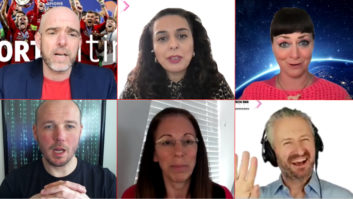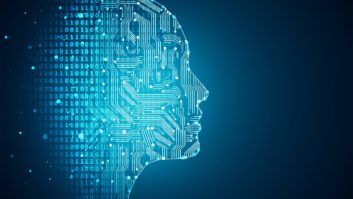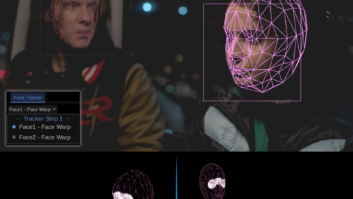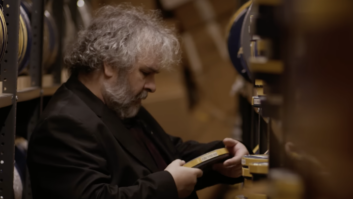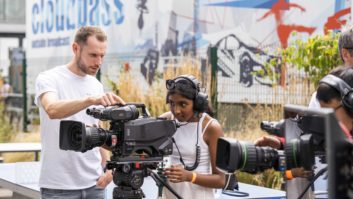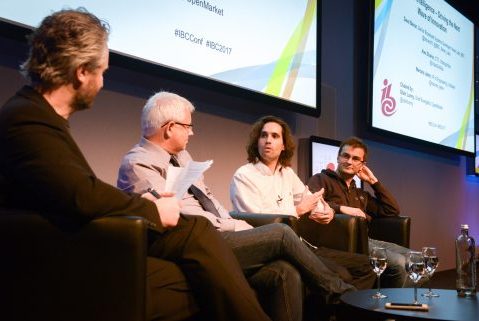
Hollywood would tell us that the rise of AI will wipe out the human race, but the BBC, Unbabel and Videogorillas are experimenting with machine learning on a far more practical level to better serve audiences.
During the Sunday morning session on AI – ‘Driving the Next Wave of Innovation’, Dave Bevan, a senior broadcast systems developer from BBC News Labs, said that the broadcaster wanted to use machine learning to help its journalists wrestling with the “tsunami of content” they face when covering major events.Bevan said:
“Think about the General Election in June [in the UK], where a whole range of outside sources come in. How can we use rich metadata and apply machine learning techniques to the thousands of journalists in our London newsrooms trying to find content in our system?”
According to Bevan, initial experiments with ML have focused on speech-to-text, where News Labs has taken 250 hours worth of subtitles from broadcast output and used it as a test model to feed into the machine learning process. Elsewhere, the broadcaster is using ML applications to clear music rights for broadcast, while
Bevan revealed that one of the BBC’s online channels is using ML to produce programming schedules. “That’s just for one evening, but we are starting to be approached by very traditional people in the BBC who are wondering what this technology can do for them,” he added.
Fellow panellist Marcelo Lebre, VP of engineering at Portuguese translation software company Unbabel, is also working on practical AI applications, and unveiled an AI-powered, human-refined video translation app, Unbabel for Video, during the session.
Alex Zhukov, CTO at Ukrainian-based Videogorillas, tried to ramp up the Hollywood element with a futuristic-style app which is powered by ML and neural networks to capture and process objects in real time, like Schwarzenegger’s robot in Terminator 2.
